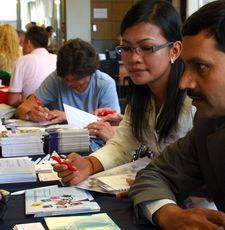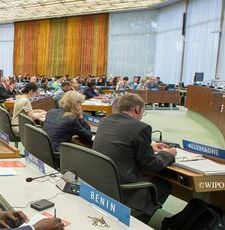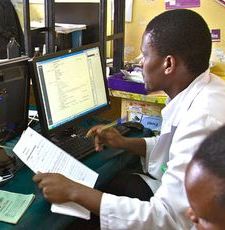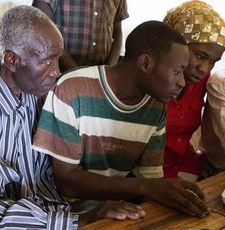ABOUT THE RESOURCE
TYPE:
Report
DATE:
January 2011
DOCUMENT LANGUAGE:
English
OTHER LANGUAGES:
We looked at the web sites of 2,489 open access journals and 357 open access repositories from EIFL network countries. And this report highlights the best practices in using open content licenses by open access journals and open access repositories in developing and transition countries.
Some general findings of the survey:
Using open content licenses by open access journals:
- We identified 556 open access journals that are licensed under open content licenses.
- There are four types of Creative Commons licenses, which are used - the most liberal Creative Commons Attribution license, Creative Commons Attribution Non-commercial license, Creative Commons Attribution Non-commercial Share Alike license and the most restrictive Creative Commons Attribution Non-commercial No Derivative Works license.
- 94% of the journals mentioned above are licensed under Creative Commons Attribution license (524 open access journals in Armenia, Bulgaria, China, Egypt, Lithuania, Macedonia, Nigeria, Poland, Russia, South Africa and Thailand).
- Nine open access journals in China, Russia and South Africa are licensed under Creative Commons Attribution Non-commercial license.
- Three open access journals in Ghana, Nigeria and Ukraine are licensed under Creative Commons Attribution Non-commercial Share Alike license.
- And 20 open access journals in Bosnia and Herzegovina, Bulgaria, Estonia, Serbia, South Africa, Thailand and Ukraine are licensed under Creative Commons Attribution Non-commercial No Derivative Works license.
Using open content licenses by open access repositories:
- We identified ten open access repositories that are licensed under open content licenses.
- A repository of open educational materials in South Africa is licensed under Creative Commons Attribution license.
- A repository of open educational materials in Kenya is licensed under Creative Commons Attribution-ShareAlike license.
- One repository in China, one in Ethiopia-Kenya, two repositories in Poland and two repositories in Thailand are licensed under Creative Commons Attribution-Non-commercial-Share Alike license.
- A repository in South Africa is licensed under Creative Commons Attribution-Non-commercial license.
- A repository hosted in Argentina is licensed under Creative Commons Attribution Non-commercial No Derivative Works license.
- Some repositories in Botswana, Poland and South Africa recommend the depositors to use Creative Commons licenses. As a result a number of publications in these repositories are licensed under Creative Commons licenses.
Using open content licenses by open access book publishers:
- A leading African agricultural research institute PLAAS (the Institute for Poverty, Land and Agrarian Studies) at the University of the Western Cape license its publications under a Creative Commons Attribution-Noncommercial-Share Alike license.
- Monographs published in collections Dissertations, Documents and Compendia of the Digital library of Slovenia (dLib.si) are available under Creative Commons Attribution-NonCommercial-NoDerivatives license.
The report was produced in the frames of EIFL-OA advocacy program supported by Open Society Institute and the Wellcome Trust.
SHARE / PRINT









